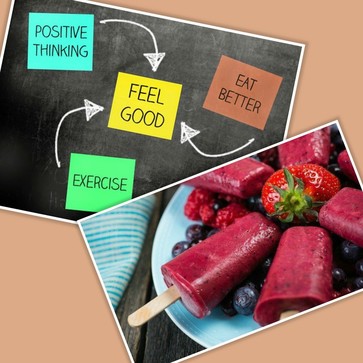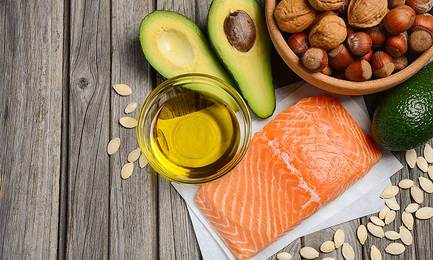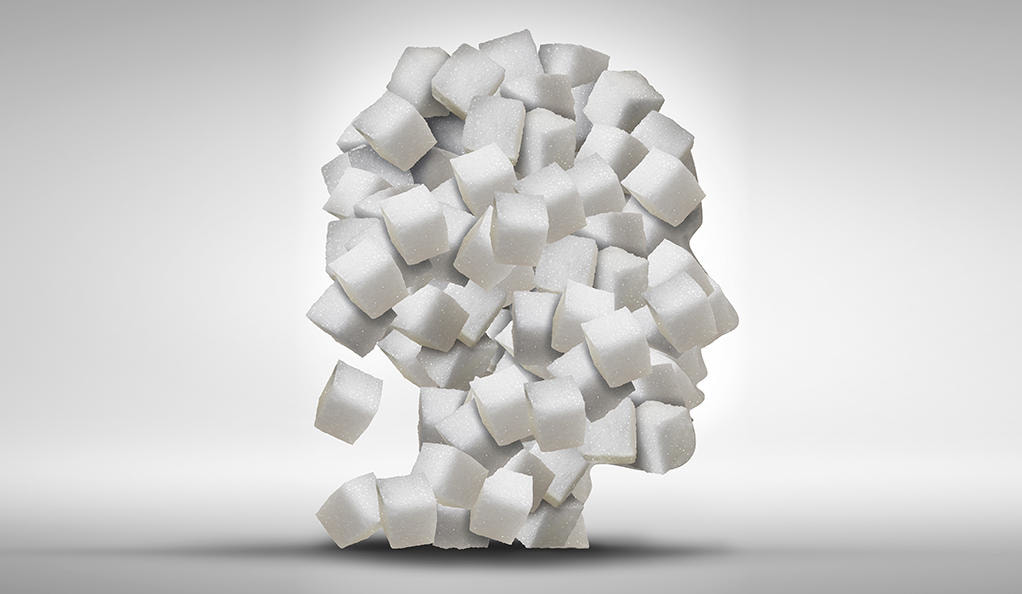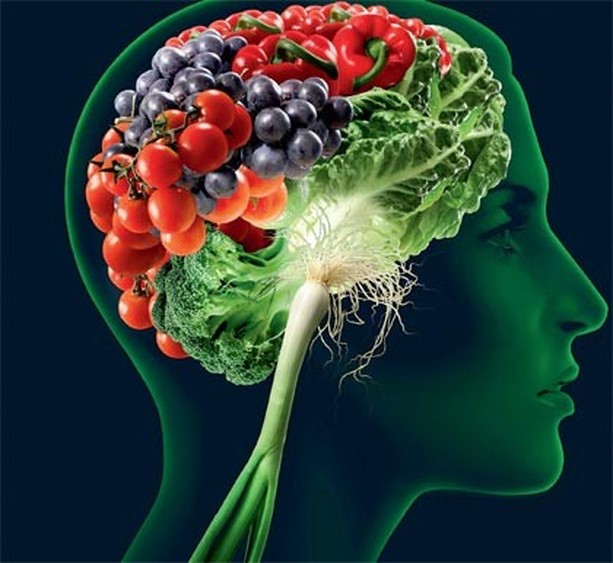|
Have you been forgetting things lately? You forgot where you parked your car the evening you went clubbing with friends, or that Sunday family picnic trip got delayed because you couldn’t find your keys, or the days you travelled overseas on work and you forgot to take your phone charger along, or perhaps that exciting day of the week watching soccer finals with your friends and you had to order in some grub but you couldn’t recall where you placed your wallet! The worse wasn’t over; at a family reunion you couldn’t recognize your aunt who used to feed you with the best parathas and took you for city fairs!Now, do you recall what you had feasted upon on all the above-mentioned days? Definitely NO. Well, then your answer to the first question lies in that of the second. You certainly are having difficulties with the memory centre of your brain. And more than certainly, all the years of feasting has casted its spell on your hippocampus! Although these events of short term memory loss happen more often than we know with almost all of us at some point of time, they can be warning signs of an impending crisis; a pathological crisis which can lead to an irreversible damage to our cognitive functions. Memory loss and dementia are the hallmarks of the most common neurodegenerative disorder, Alzheimer’s disease. Although this disorder afflicts older adults, the symptoms and manifestations can be visible earlier in life too- the frequency and intensity of which may vary between individuals depending on factors like genetic disposition, lifestyle and presence of metabolic disorders. While truckload of research and inference has gone into the genetics and therapeutic aspects of it, very few are aware of a crucial link it has with another very critical facet of or diet, the sinful sugars. Memories... Tangled and Piled The brain functions primarily in 2 ways: one, using almost 25% of the blood supply of our body to obtain nutrients, and two, ensuring smooth neurotransmission across neurons to control all body functions. Any disruption in either of these can lead to serious brain dysfunctions. Unfortunately Alzheimer’s disease influences both these aspects. The role of amyloid beta protein has not been elucidated during normal functioning but in Alzheimer’s disease, it builds up into lumps or aggregates right at the synaptic junction between nerve cells and hampers effective neurotransmission. At the same time, another protein Tau which is otherwise responsible helping the framework of neurons stay organized to transport nutrients into the cells, undergoes phosphorylation and collapses into tangles or twisted strands. This causes the neuronal framework to collapse and start degenerating or disintegrating, thereby preventing any further entry of nutrients and essential supplies into the cell which eventually dies. For this reason, Alzheimer’s is called a neurodegenerative disorder. This brings us back to elucidating how diet can modulate neurodegeneration. Excessive sugar intake in our diet causes a large part of it to travel to the brain. Glucose is extremely essential for the brain towards various functions, but when there is more than what’s required, it turns catastrophic! Glucose causes damage proteins via a chemical reaction called ‘glycation’ that produces substances called Advanced Glycation End products (AGEs). These AGEs further modify amyloid beta proteins to form aggregates at the neuronal junctions. Simultaneously, AGEs through a complex signaling cascade cause phosphorylation of tau protein, which get restructured into tangles resulting in subsequent neurodegeneration. On the backend, a pivotal enzyme MIF is actively involved with our immune response to any possible accumulation of abnormally modified proteins. But in scenarios of excessive unwanted sugar intake, glucose yet again through glycation, modifies and inhibits the protective function of MIF. So, basically not only does it cause the damage but also constrains the protective mechanisms! The magnitude of casualty sugar can cause in the brain is inapprehensible. And for this very reason, diabetics are considered to be at higher risk of developing Alzheimer’s disease. Sugars, especially refined and simple ones like baked flour goodies, few cereals, sweets, aerated drinks and sweetened beverages should be totally avoided for metabolic as well as neurological wellness.
Sadly, there is no cure for Alzheimer’s disease. It is a disease of the aging and can be excruciatingly debilitating for the patients. There is no prophylaxis for it either, except a few minor lifestyle changes that can be incorporated to slow down the process. Cutting out those nasty sugars from our diet and following a balanced meal system with limited complex carbs and loads of fruits, vegetables and lean meat, is the best nunchaku for avoiding early onset of Alzheimer’s till ofcourse, genetics uses its chainsaw! If not prevent, a mind-ful diet can ameliorate manifestations of Alzheimer’s disease to a great extent. Baggages. We carry them everywhere; domestic issues, workplace stress, personal relations, heartburns of the past, and so many more. We shed a few as we travel up, but few baggages land up on our plates and travel straight down to our intestines! The dejected ones call it filling up the emptiness and the health experts implicate it as Emotional Eating: a condition where one uses food to satisfy their emotional hunger rather than their physiological hunger. Physiological hunger entails:
Emotional eating is purely based upon impulsion rather than nutritional requirement and the sufferer tends to binge upon foods that spike up their blood glucose levels to give a sense of fulfillment. Fries, chips, burgers, pizzas, ice creams, chocolates, cakes are some of the most exploited ones for instant gratification. Fluctuating mood and emotional cues like euphoria, sadness, depression, anxiety or general lack of interest can drive one towards emotional eating, turning food into a reward system for the brain to cope up with oscillating emotions. This reward system encapsulate 4 aspects:
Emotional eating is not just a temperamental mess to deal with. It has underlying physiological impacts, often long term, if not contained in its early phases. Since taste is the paramount criteria to lure a mind, the foods consumed are hyper-palatabile and act like addictive substances for the brain to generate a sense of pleasure. This hyper-palatability loaded with simple carbs, sweeteners, saturated fats and oils, it is nothing short of a catastrophe in disguise with metabolic disorders and obesity consequentially striking the system at lightning speed. What exactly goes wrong? It is all in the brain! Hypothalamus is a tiny part of the brain doing some big stuff out there. Apart from maintaining daily physiological functions, its key function is to regulate hormones, appetite, emotional responses and sexual behaviour. This hypothalamus has a complicated relationship with the ‘satiety hormone’ leptin. Leptin is the hormone for regulating energy expenditure through negative control of feeding. It inhibits appetite or hunger by signaling the hypothalamus when your calorific intake is sufficient enough thereby preventing you from overeating and gaining weight. It is produced liberally by adipocytes or fat cells in a simple mathematical proportion: more the fat cells, more leptin oozed out into the blood stream. By this logic, overweight or obese people should have more leptin floating around and should prohibit them from over- or binge-eating, but this does not happen. Rather, such individuals are more prone to binging and gaining further weight, making this mechanism more complex than it seems. Obesity figures in a walloping compromise on the leptin-hypothalamic axis. It renders the body leptin-resistant. In this condition, leptin, although is secreted normally by the adipocytes in response to high fat content, the brain refuses to acknowledge its presence. The pathophysiology of leptin resistance has not been clearly elucidated although diet-induced hypothalamic inflammation and leptin receptor mutations are considered to be the primary causes of it. As a result, the brain senses starvation while the body suffers obesity. Hunger remains unhindered and continues to bolt the body with more and more calories.  Lose the vulnerability. Gain Control. Lose the vulnerability. Gain Control. How do you clear the mess? Staggering back on trail is far less easy than going off-track. There is a monster to tame and you will have to give in, give up and give way to all that has been guzzling you offlate.
Emotional eating is not accomplished overnight. It creeps in stealthily from the dingiest corners of your heart and treks right upto the brain without any noise. The alarming part is that you lose control. It may start with just a handful of peanuts to munch on, moving on to gulping down a shake and before you realize you are neck deep in a tub of icecream! The other word for emotional eating is self-sabotage. Well, really. The magnitude of damage emotional eating can inflict on you is unimaginable. Once the orb of obesity is created, there is a gargantuan hill to cross. Nevertheless, there is always a plan B. Talk to your therapist, dietician or nutritionist for expert advice. You may have to work upon your emotions and also shed all those extra pounds you gained for polishing off the pizzas and chocolates before rearranging your physiology. Developing and practicing strategies to cope with the emotional turmoils are not always easy, yet achievable. Be gentle to yourself and tell yourself more than often than you can do it. Let not your emotions control your eating behaviour. They can weigh you down and can weigh you up too. Next time your emotions play the dirty devil and wheedle your cravings, remind yourself, food is fuel, not a reward! "The mind is your greatest weapon" I read this quote anonymously written by some philosopher who either had a flair for creating random thoughtful insights or had tangibly experienced the power of this weapon. This quandary existed with me only till I started practicing martial arts. Martial arts have a way with minds. Not only do they make your body flexible, but your mind too. Applying your brute physical force to kill is not difficult. Controlling that power is. How we use our internal energy or ‘Qi’ draws that big bold line between a bouncer and a martial artist! Martial art is way beyond the depiction of super-flexible heroes flying 10 feet up in the air and knocking out baddies. A martial artist carries an entire monastery inside; there cannot be more tranquility and control elsewhere. The union of physical and internal energy, harmony of yin and yang and the ultimate equilibrium of movement, endurance and self-control forms the doctrine of martial arts. A common point of contest is whether martial art endows us with mindful control or are people with a disciplined psyche more equipped to learn martial art. Like an elastic which cannot show how much it can stretch till it is actually pulled across, mind can display its tensile power only when acid-tested! There is practically nothing that a mind cannot achieve if tendered value, practice and discipline. Martial art offers exactly that. You do not need a perfect body or an ingenious mind to be a martial artist, rather your body and mind will sculpt up naturally during your tryst with a martial art. Martial art is never fought. It is played; it is imbibed; it is practiced. Not only is it an incredible form of exercise, but also a conduit for holistic development. Martial arts employs 3 basic principles:
Armed (swordsmanship, kalaripayat) or unarmed (muay thai), combat-oriented (mixed martial arts, boxing, wrestling, etc.) or spirituality oriented (tai chi), martial arts has been an intense subject of cognitive neuroscience, ingraining a profound understanding of the relationships between your internals and externals. Your opponent, surroundings, your body and mind, the elements of universe, your ontology of judgment, loss and victory, fear, submission, and eventually the metaphysics of life and death, all make up the external you integrate with.  Mastering the energies within you and outside you Mastering the energies within you and outside you "The best fighters are never angry" A martial artist is often conceived to be a robust, insistent, temperamental and aggressive person ready to punch your face or deliver a choke on slightest trigger, someone to keep one-arm-distance away. But contrary to this very prejudiced view, he or she exudes exceptionally calm and assertive energy, a deeper perception, lack of aggression and a non-conflicting demeanour. Martial art doesn't teach you to kill. It teaches you to control your powers to safeguard life. And this wisdom doesn’t develop overnight; it comes effortlessly only with persistence and practice. But despite having a universal acknowledgment of these assets, why is martial art not a part of our lifestyle? Either it is the fear of injury or lack of cognizance towards its long-term benefits that makes martial art more of a hobby than a lifestyle practice. Out of a vast pedigree of martial arts, one can choose the type best suited to his/her individual disposition. Nevertheless, it takes an enormous amount of commitment and devotion to accomplish it. The connect between body and soul is unfathomable. Like the body that has its split second of life and death, the mind too has its moment of truth. It is only by invigorating mindfulness that this connect can be established. Practicing martial art is not just empowering, but also enlightening. Never to forget, it is an art. A form of art, which requires the inscrutable balance of a strong mind and a fit body. Not only does it teach you self defense but also self-control. Tai chi stands as a classic example of cultivating life energy and creating internal force by blending meditation and exercise. As a result of this interplay between movement- and breath-control, the level of mental acuity and tranquility Tai chi infuses is mind blowing, literally! Every form of martial art ushers mental, emotional, and spiritual discipline into the player which no other physical activity or sport can. It isn’t called movement meditation just frivolously! Martial Art is all about building up power to act and mental strength to decide when to and when not to use that power. It is not to awaken the beast inside you, but to manifest the best in and out of you. The World Health Organization defines Health as a "state of complete physical, mental, and social well being, and not merely the absence of disease or infirmity” and the primary source for health, functionality and sustenance of life is food. The nutrients provided by food are required not only for physical vigor but also for mental and emotional wellness. The brain utilizes nutrients for its structural integrity and functioning. What we eat affects the way we feel and conversely, the way we feel often pushes us towards certain types of food. An unhealthy diet regimen, starvation or binging can lead to severe mood fluctuations and very often psychological distress. Similarly, a rough day or an emotionally draining phase can easily incite cravings for chocolates or sugary foods to provide instant blood glucose spikes giving a sense of satisfaction, thereby launching a vicious cycle that eventually causes systemic dysfunctions. The 'Science' and 'Signs' of Happiness It’s all about the feel! Our mood can determine how we perceive, act and react and the brain dictates us what or how to feel. Which raises the next obvious question as to what ordinates our cerebrum or is the brain a self-reliant organ. On a scale of 1 to 10 how surprised will you be to know that there exists a phenomenal connection between our gut and our brain? Whatever gets into our gastrointestinal system mandates how our brain directs the penumbra of mood and behaviour. So what exactly goes on inside our brain that correlates our choice of food with our mood? There lies a neurological circuitry that connects food to mood! To decipher this, we need to first understand how the complex network of nerve cells consolidates our central nervous system to the body through neurotransmission of signals to and fro. Neurotransmission is nothing but transmission of signaling molecules or chemical messengers called neurotransmitters from one neuron to another target neuron/muscle cell/gland cell across synaptic junctions to get the desired response. This signal can be of physiological functions, pain, hunger or emotions, etc. As microscopic as it may sound, neurotransmission is nevertheless an energy-consuming process.Since food is the fuel for our body functions, it directly regulates production, secretion, availability, and action of neurotransmitters too. There are more than 100 neurotransmitters identified till date, of which a few directly regulate mood and one's emotional/mental state. A quick glance over these, their mode of action and their response characteristics to nutrition, would help elucidate the neurobiology of wellness.  What goes down the stomach, travels up the brain! What goes down the stomach, travels up the brain!
 Indulgence in Happiness Indulgence in Happiness
 'Rich' food for a wealthy mood 'Rich' food for a wealthy mood There are some more substances that play a substantial role in optimizing neurotransmitter levels and influencing our mental well-being.
Food for Thought
Isn’t it astonishing to see the opulence of food options available for improving and sustaining our mental health? Yet, unfortunately these choices are not exploited liberally enough. Mental health is undeniably the most crucial facet of our overall well-being. We may be free of physical ailments but even a modest warp in our emotional or mental state can derail us. Mood is very frivolously spoken of; a person with the quintessential 'mood-swings' is often a subject of disparage, humour and mockery. Hardly anyone, for that matter, the patron himself/herself, would try to fathom out the cause and consequences of his/her state, let aside remediating it! Our mood can determine where we channelize our energy and intellect, use our physical strength and maintain the mind-body balance. And the nutrition we absorb from the food we eat determines the way our mood curves. Food is, ergo, the best prophylactic as well as a therapeutic commodity for our mood. Lastly, it is not just what we eat but also how we eat that affects the action of nutrients on the brain. The age-old injunction to “enjoy the food you eat and eat slowly” should not be undervalued. Eating the right kind of food, at the right time, and in the right way, is paramount to address and employ its benefits. A piece of dark chocolate gulped down as you hurry out for work at 9am will show little to no benefit. Rather, grab a piece as you play with your kids, or sit with your besties or cuddle with your partner, or just slow down your racing feet, savour its delicacy and feel the endorphins exuding through your blood stream! |
AuthorDietitian & Nutritionist Dr. Nafeesa Imteyaz. Archives
May 2020
Categories |
- Home
- Written Testimonials
- Consult
- Clinics
- Blogs
-
Diet & Nutrition
- Diabetes Reversal
- IVF IUI not needed for PCOS PCOD Infertility
-
Medical Nutrition
>
-
Disease & Conditions
>
- Infertility | PCOS
- Diabetes Mellitus
- Cholesterol
- Hypothyroid
- Kidney Problems
- Hypertension
- Cardiovascular Diseases
- Liver Diseases
- Gastro intestinal disorder
- Cancer
- Metabolic Disorders
- Orthopedic Disorders
- Eating Disorders
- Dietary Recall
- Weight Record Filled By Clients
- Online Payment Transaction Details
- Online Clients Weight Check Form
- Our Program Package Service Charges
- Weight Record 2017 Clients
- Measurements sent by Clients
- Terms & Conditions Of Payment
- Thanks. Your Form is Submitted
- Video Testimonials
- Lifestyle & Wellness
- Lifestyle & Wellness Blog
- Allergy & Intolerance
- Weight Loss / Gain
- Weight Loss / Slimming Blog
-
Disease & Conditions
>
- Life Cycle Nutrition >
- Sports Nutrition >
- Integrity in Nutrition
- Knowledge Centre
© COPYRIGHT 2022. ALL RIGHTS RESERVED. FRST HEALTHCARE PVT LTD.
Dr. Nafeesa Imteyaz of First Eat Right clinic, is the Best Dietitian Nutritionist in Bangalore. Best Dietitian Nutritionist in Pune. Best Dietitian Nutritionist in Hyderabad. Best Dietitian Nutritionist in Chennai. Best Dietitian Nutritionist in Mumbai. Best Dietitian Nutritionist in Delhi. Best Dietitian Nutritionist in Kolkata.






